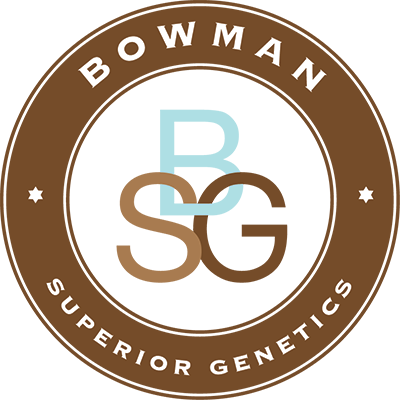A Facebook post by friend of BSG, Marty Ropp, of Allied Genetic Resources, back in the summer of 2018. It’s timeless. “If your seedstock provider doesn’t use or discourages you from using EPDs and genetic tools to make decisions, they truly have only their success in mind and not yours. Promoting ignorance to remain successful…
read moreIn this episode of IGS Stand Together, International Genetic Solutions speaks to industry stakeholders, geneticists and meat scientists to explore beef cattle genetics that ensure more profitable, sustainable herds. Host Chip Kemp sits down with guests from the U.S. Roundtable for Sustainable Beef, International Genetic Solutions, Washington State University and Meyer Natural Foods for an…
read moreOriginally published in the Western Livestock Journal, Oct 21, 2022 By Dr. Bob Hough There is a common myth that all performance cattle have bad structure and all show cattle have bad EPDs. These beliefs are simply not true on both accounts. For show cattle, it is true that a certain number have lower-than-desired…
read moreLuke’s Preface… The greatest gift the ASA membership has received in the twenty-first century is the incorporation of economic selection $Indexes into our national cattle evaluation (performance database). It has literally taken us away from single trait selection and forced breeders to consider animals that are more (or less) profitable on the average farm/ranch enterprise.…
read moreReprinted from The Register magazine. By retired IGS Geneticist, Dr. Lauren Hyde. Expected Progeny Difference FAQ Q 1. How do you balance EPD selection and actual phenotypes? Expected progeny differences (EPD) have a clear advantage over less sophisticated predictors such as raw weights and contemporary group ratios. Performance data are subject to environmental…
read moreLinked is an excellent piece that covers the highlights of the evolution of genetic evaluation in the American beef seedstock industry. It begs the question, “Where is my emphasis on making cattle ‘better’…?”Are you up to date in using selection tools that make cattle that fit the modern industry, or are you still evaluating them…
read moreThe quote below was shared with Luke by Dr. Bob Hough. Bob is the author of many great and important beef breed books. Interestingly enough, he is the co-author of the 2021 book, “Shorthorn and the American Cattle Industry” with Dr. Bert Moore. This quote, written in 1875, is a telling excerpt from an upcoming…
read moreDr. Bob Hough is a true industry icon and one of the great beef leaders who sees the uniqueness, and more importantly, the role of every major breed within the cattle industry. It was Bob and our good friend, Dr. Bert Moore, who recently wrote the engaging book, “Shorthorn and the American Cattle Industry.” Bob…
read moreA great piece by Luke’s coworkers, Dr. Randie and Dr. Jackie! “Female longevity is one of the most economically impactful traits of commercial cow-calf operations. When choosing genetics for replacement females, emphasizing stayability will optimize the genetic potential for longevity in the herd.” Read the full, short article here: https://www.internationalgeneticsolutions.com/site/index.php/component/content/article/95-igs-news/104-stayability-epd-does-it-works?Itemid=437
read moreSee link to the latest from the USDA Meat Animal Research Center. Of the breeds with a critical mass, Shorthorns rank #3 for MARB behind Angus & Red Angus. No other surprises or big shifts from previous years. There is work to be done, but Shorthorns aren’t sitting in a bad spot. But again, there…
read more